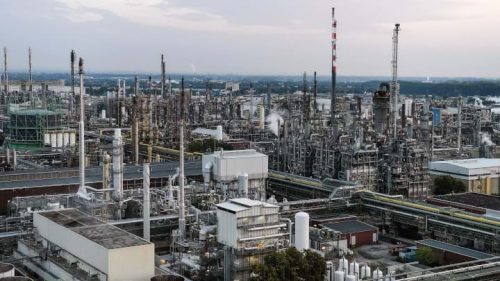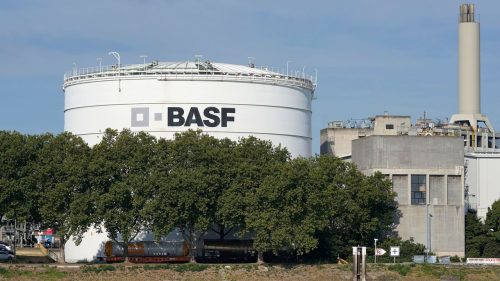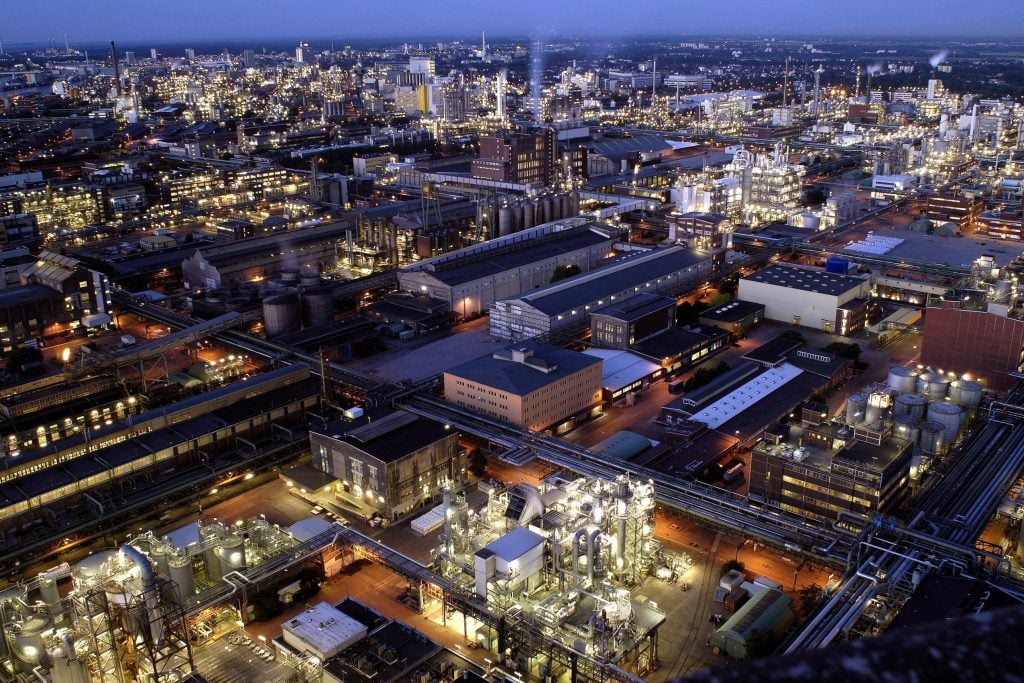The energy crisis, which hit Europe in 2022 against the backdrop of the Russian-Ukrainian war, cast a shadow over the world’s largest chemical complex.
The German company, BASF, revealed a plan to cut 2,600 jobs and reduce production in Germany. Europe’s largest chemical producer is preparing for a future without cheap Russian gas, according to data seen by the specialized energy platform.
The German company relied on Russian gas as a raw material for electricity generation, toothpaste, medicine, and the automobile industry, and Russian fuel supplies posed a threat to the company’s mass production center in the world’s largest chemical complex.
Overall, the cuts will reduce the workforce at the company that operates the world’s largest chemical complex by about 2% through 2024, and are among the largest cuts yet by a German company amid an energy crisis triggered by Russia’s invasion of Ukraine, Bloomberg reported.
stop production
The company, which operates the world’s largest chemical complex, has shut down a number of energy-intensive plants. including two ammonia plants and related fertilizer facilities; This led to the abolition of 700 jobs in Ludwigshafen, the company’s headquarters in Germany.
The largest chemical complex in the world, which includes 200 plants, consumes about 4% of the total gas demand in Germany; 60% of the fuel in the power plant is used as a raw material for electricity generation, and the remaining 40% for the production of chemical products; Including ammonia and acetylene.
Chemicals production in the European Union fell by nearly 16% during the fourth quarter of 2022, with operations of the world’s largest chemicals complex swinging to a loss during the second half, according to a company presentation.
Germany’s chemicals sector is particularly gas-intensive. It represents about 15% of the country’s total annual fuel consumption before the war.
stock purchase
The German company expected lower profits this year, stating that it would end share buybacks early due to the energy crisis and the deterioration of the global economy.
BASF shares fell 7% in Frankfurt, the biggest drop since June, according to the data seen by the specialist energy platform.
BASF’s €3 billion ($3.17 billion) share buyback programme, which began last year in January, was supposed to run until the end of 2023.
The company said its share buyback programme, which set aside 3 billion euros early last year, would come to an early halt after spending 1.4 billion euros ($1.48 billion) on private equity due to “profound changes in the global economy”.
In a statement, BASF CEO Martin Brodermüller cited “over-regulation, slow and bureaucratic permitting processes and, in particular, the high costs of most input factors of production.

gas bill
BASF’s gas bill rose by about 2.2 billion euros ($2.3 billion) last year compared to 2021, despite a 35% drop in consumption.
The company’s overall energy bill was about 3.2 billion euros ($3.38 billion), despite lower production at many plants.
The company previously said it aimed to cut annual costs by 500 million euros ($528.80 million); It does not expect gas prices to return to pre-war levels.
While gas has receded from high levels, prices remain high compared to historical levels, and are higher in Germany than in competing manufacturing regions in the US and Asia.
The rise in gas prices threatens thousands of jobs and increases the possibility of diversification of investment elsewhere. A survey by the German Chemicals Association in late January revealed that nearly half of chemical companies plan to cut investment in Germany this year because of energy costs.
BASF earnings
BASF, which operates the world’s largest chemical complex, expected operating profit to decline this year, with adjusted EBIT of up to 5.4 billion euros ($5.71 billion), after a 12% decline in profits in 2022 to 6.9 billion euros ($7.30). Billion dollar).
Despite the challenges; The German company kept earnings unchanged at €3.40 ($3.60) per share, and expects a better second half of the year than the first, led by a recovery especially in China.
BASF also suffered in other ways from the invasion of Ukraine, which severed the long ties between German industry and Russia; The company helped finance the construction of both Nord Stream gas pipelines through its subsidiary Wintershall Dea, and the severance of ties with the project in January 2022 led to a write-off of 7.3 billion euros ($7.72 billion) and a historic loss for the German company, which also managed projects. Joint venture with Gazprom and others.
Cut costs
The world’s largest chemical complex said it would shut down one of its ammonia plants at its main site in Ludwigshafen and units producing caprolactam, a chemical used to make fibers and plastics.

The plans, which are expected to reduce the group’s annual costs by 200 million euros ($211.52 million) by the end of 2026, will also cut Germany’s production of adipic acid – a compound used in the manufacture of nylon – as well as the closure of 3 other plants that were needed in produce it.
The additional cuts announced on Friday will result in a net loss of 2,600 jobs at the world’s largest chemical complex, mainly in Germany.
BASF, which operates the world’s largest chemical complex, said the plans would lead to a “significant” reduction in its demand for natural gas in the country; This reduces carbon dioxide emissions by 0.9 million metric tons annually, about 4% of what it emits globally.
The latest cost reduction comes on top of an existing plan to cut costs by 1 billion euros ($1.06 billion) over the next two years, which the company announced last year.
related topics..
Also read..

Leave a Reply